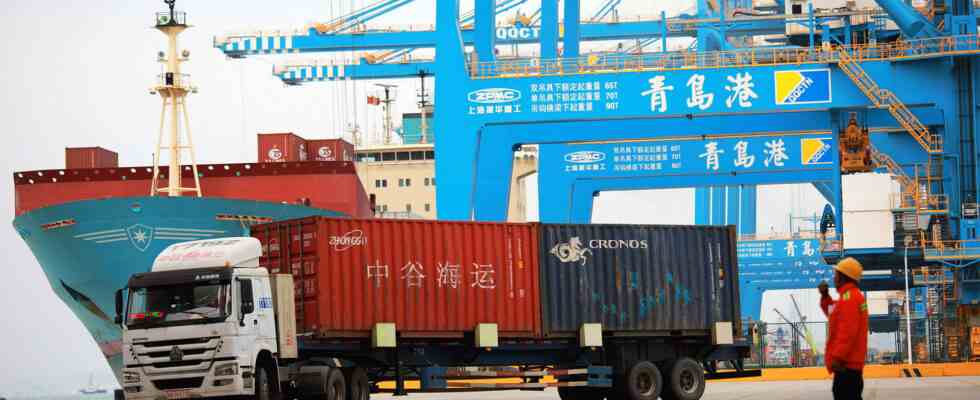Status: 02/15/2023 1:54 p.m
According to a study, German companies are only dependent on Chinese imports for individual products – in these cases, however, the dependency is “critical”. Which products are particularly affected?
The German economy is very dependent on China for important products – laptops, mobile phones and medical devices such as respiratory masks. Here the import shares are up to 90 percent, according to an analysis published today by the Kiel-based economic research institute IfW. The IfW experts identified a total of 221 products for which China and Taiwan together dominate German imports.
Overall, however, the dependency is significantly lower than classic trade statistics suggest. Only an extremely small part of German production depends on Chinese inputs. By far the largest part comes from German contributions. According to this, German companies are only dependent on Chinese imports for individual products – in these cases, however, the dependency is “critical”. “For the majority of the products, the import share of both countries is over 80 percent,” explained the IfW.
High dependency on laptops
The researchers have found that Germany is particularly dependent on imports of laptops: 80 percent of portable computers are imported from China. China is also by far the most important supplier of mobile phones, certain textile products, graphics cards and LED lamps. The share of imports from China is 68 percent for mobile phones and 62 percent for computer parts such as sound and graphics cards.
There is also a massive dependency on some of the rare earths and raw materials classified as critical by the EU, such as scandium and antimony. Germany gets 85 percent and more of these from China. They are used for battery production and surface coatings. In the case of respiratory masks or painkillers, it is sometimes more than 90 percent.
Opencast mining in southern China: According to the IfW, the dependency on rare earths from China is very high.
Image: dpa
More diversification needed
China dominates the German supply for individual raw materials and products and cannot be replaced as a supplier in the short term. Therefore, a strategy for more diversification is urgently needed, explained study co-author Alexander Sandkamp.
The expert explicitly referred to the danger of a military conflict between China and Taiwan. In this case, deliveries from China are likely to be canceled due to sanctions – and also from Taiwan due to Chinese blockades. “That would exacerbate a German supply emergency for certain critical products,” explained Sandkamp. In addition to many computer components and electronic shift units, Taiwan also supplies bicycle parts.
Should the EU boycott Chinese imports, there would be practically no alternative suppliers available, they say.
China’s economic importance low?
German consumption is more dependent on China than German production. China’s importance doubles for both consumption and production if indirect linkages are taken into account. “Even if Germany were to succeed in reducing its imports from China to zero, the German economy would not yet be independent of China,” it says. These indirect links are then particularly relevant when there are general production bottlenecks in China, for example due to lockdowns. In the event of Germany decoupling from China, the direct links are primarily relevant as long as other trading partners of Germany do not also decouple from China.
Overall, however, China’s importance for the economy of the Federal Republic is surprisingly low. Only 0.6 percent of the direct input required for German production comes from there – less than from the USA and France.
GDP down by 1 percent with decoupling
Taking into account inputs from other countries, which in turn are manufactured there using Chinese inputs, China’s importance increases to 1.5 percent. In the case of end products for German consumers, the proportion of Chinese products is about twice as high.
According to the IfW, the figures are in contrast to current statistics, according to which China is the most important country of origin of all German imports with almost twelve percent. According to model calculations, a decoupling of the EU from China with a reduction in trade by 97 percent would reduce Germany’s economic output by one percent in the long term – if new supply structures are established. Measured against the gross domestic product in 2021, this would correspond to a lost value added of 36 billion euros per year.

